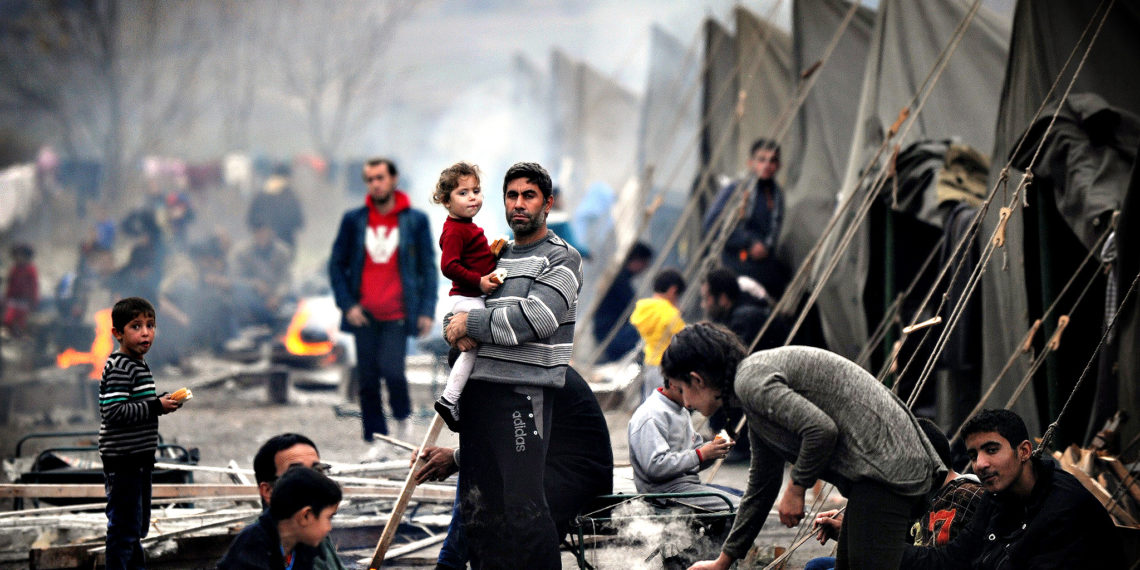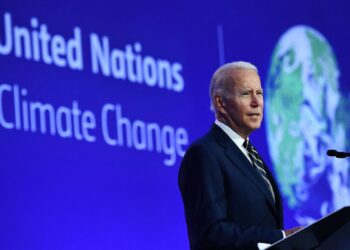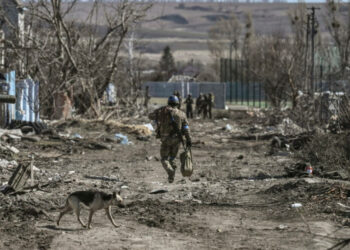As domestic and international debates swirl around President Donald J. Trump’s announcement to withdraw all U.S. military forces from Syria, it is important to consider how U.S. involvement in the conflict thus far has generated responsibilities that extend beyond the presence or absence of active troops.
Much attention is being paid to what the Trump administration’s decision means for the counterterrorism strategy against ISIS and, in particular, for U.S.-allied Kurdish forces that have battled ISIS and helped lead the Syrian Democratic Forces.
The need for U.S. troops in the past has been justified not only in terms of combatting ISIS but also on the basis of providing a “visible sign of deterrence” to prevent Turkish troops from attacking Kurdish forces. The consequences of the removal of this deterrent amid ongoing tensions between Turkey and ethnic Kurds are therefore a major concern.
Indeed, one day after the troop withdrawal announcement, the Turkish defense minister stated that Kurdish forces in Syria would be “buried in the trenches” in any Turkish military offensive. The notion that the United States has an obligation to protect Kurdish fighters, thousands of whom have lost their lives in battles fighting ISIS, is understandably central in the debate over the U.S. withdrawal decision.
Broader Consequences of US Involvement
Less attention has been paid, however, to the implications of U.S. military involvement for Syrian civilians displaced by the violence and persecution that have been shaped in part by the trajectory of U.S. policies and actions in the conflict.

I have previously assessed how U.S. foreign policy decisions contributed to the outbreak and evolution of the Syrian conflict regarding both demographic and ideological factors. The U.S.-led Iraq War generated a massive influx of Iraqi refugees into Syria that contributed to the demographic vulnerability in urban centers. It also facilitated the development of sophisticated strategic thought among militant Salafist groups regarding the expansion of targets that could be considered legitimate enemies. Such shifts made the Syrian conflict more lethal and protracted, shaping the recruitment of foreign fighters and the regionalization of the conflict along sectarian lines.
In 2013, the U.S. role in the proxy war dimensions of the Syrian conflict escalated from the provision of primarily nonlethal and humanitarian assistance for the Free Syrian Army to the provision of U.S.-made anti-tank missiles transferred to insurgent groups vetted by the CIA.
This marked a turning point in the involvement of the United States. By arming warring factions contributing to the growing violence inside Syria, the United States arguably began to bear much greater responsibilities in terms of civilian harm stemming from the conflict.
U.S. military engagement in Syria continued to grow in the final years of Barack Obama‘s administration, with the direct bombing of Syrian targets commencing in 2014 and the authorization of U.S. ground troops beginning in 2015. By the end of the first year of the Trump administration, there were an estimated 2,000 Marines, Army Rangers, and special operations forces operating in Syria.
The United States has also carried out thousands of airstrikes inside Syria. President Trump increased these strikes as part of Operation Inherent Resolve, which aligned with his controversial campaign promise to “bomb the s—” out of ISIS in Syria.
While these strikes have targeted militants, unintended civilian casualties have also occurred. Analysis by the Airwars monitoring group indicates non-combatant deaths from U.S.-led air and artillery strikes increased by more than 200 percent during the first year of the Trump administration, rising to an estimated 4,000 to 6,000 Syrian civilians in 2017.
In November of 2018, the U.S. military confirmed over 100 civilian casualties caused by U.S.-led coalition attacks in Raqqa alone. Rescue teams and human rights groups assert that the majority of the 2,600 bodies recovered from the Raqqa destruction sites have been civilians.
Responsibilities to Syrian Refugees
This growing U.S. military involvement in Syria over the past several years comes with responsibilities towards civilians fleeing the violence of the conflict.
By the beginning of 2018, nearly 13 million Syrians were displaced, representing around 60 percent of the country’s pre-conflict population. Syrians continue to remain the largest forcibly displaced population worldwide, including over 5.6 million refugees residing outside the borders of their home country.
In the United States, however, resettlement of Syrian refugees has all but halted. Policy moves including the Trump administration’s travel ban and the introduction of additional enhanced vetting measures have largely been successful in blocking asylum and third-country resettlement for Syrian refugees. For several months in 2017, these policies resulted in zero U.S. admissions of Syrian refugees. Between fiscal years 2017 and 2018, overall annual Syrian refugee admissions in the United States declined from around 6,500 to just over 60.
While governments might resist acknowledging their contributions to civilian harm and displacement crises, the announcement of the decision to withdraw all U.S. troops from Syria offers a renewed opportunity to think about what this military involvement has meant regarding culpability-based obligations.
Apart from potential obligations to Kurdish fighters that have been allied with U.S. forces on the battlefields of Syria and beyond, U.S. involvement arguably warrants responsibility to offer asylum and other forms of protection to Syrians fleeing the violence of the war – violence which the United States has actively shaped over the past several years.
As the debates surrounding the withdrawal announcement continue to unfold, it is important to reflect on the numbers of U.S. troops and U.S. air and artillery strikes within Syria in relation to the number of Syrian refugees the United States has accepted. Doing so prompts us to critically consider what long-term responsibilities might accompany such actions.
Disclaimer: The views and opinions expressed here are those of the author and do not necessarily reflect the editorial position of The Globe Post.






















